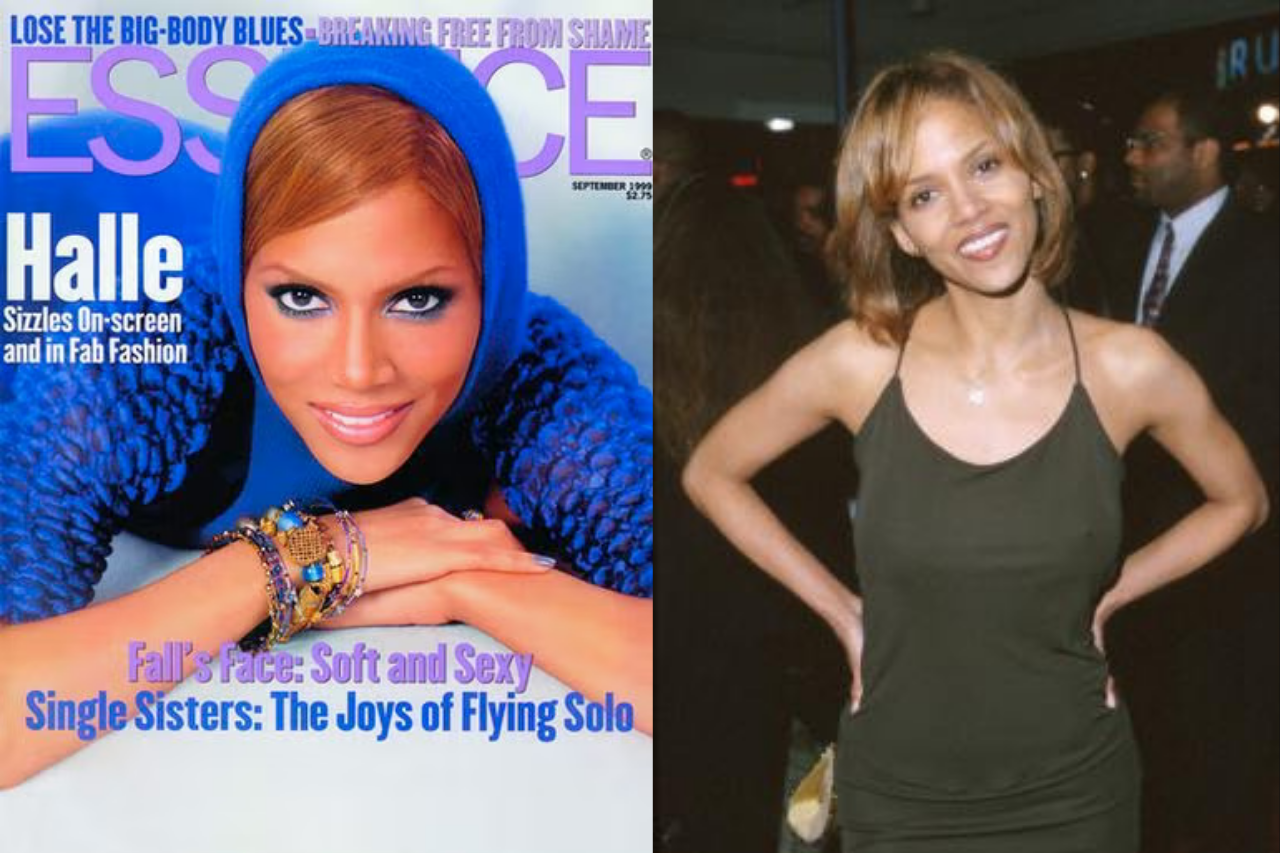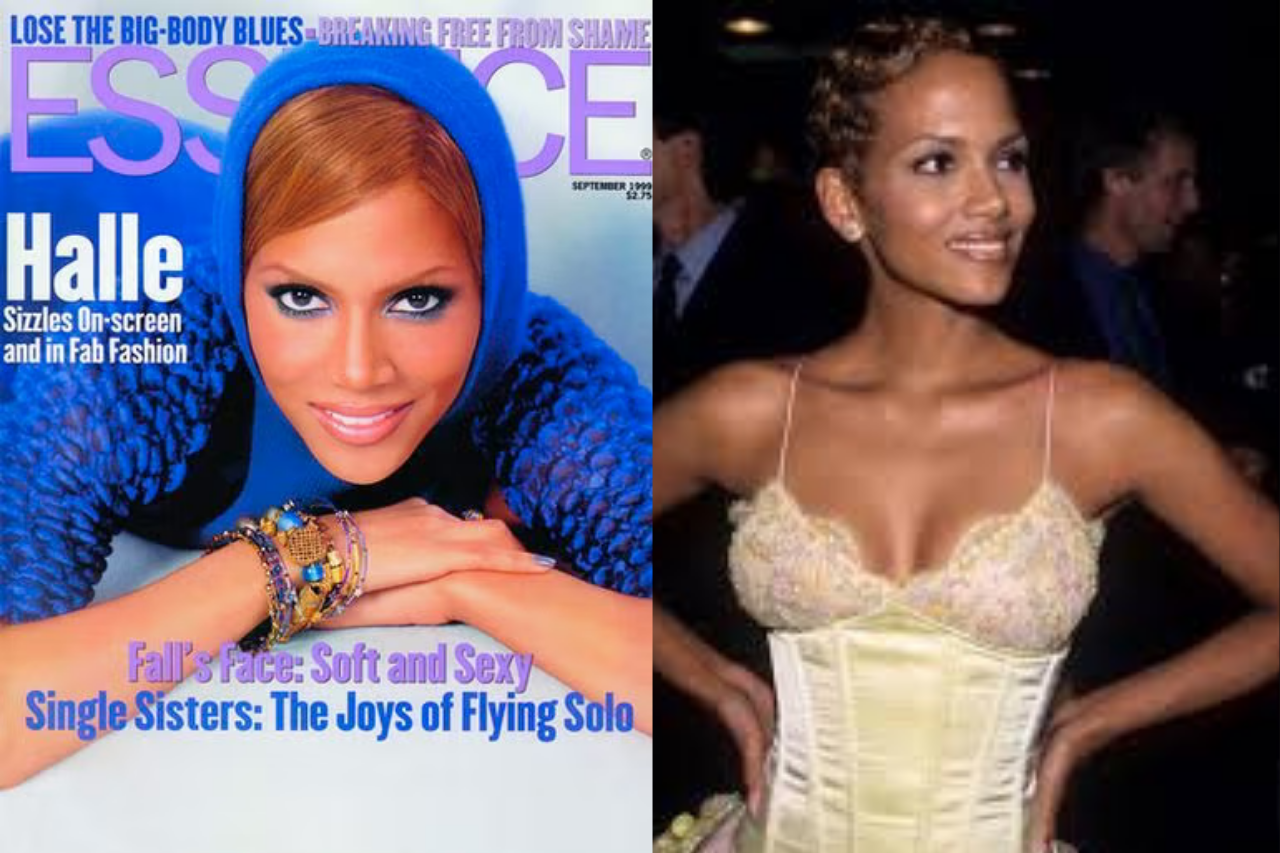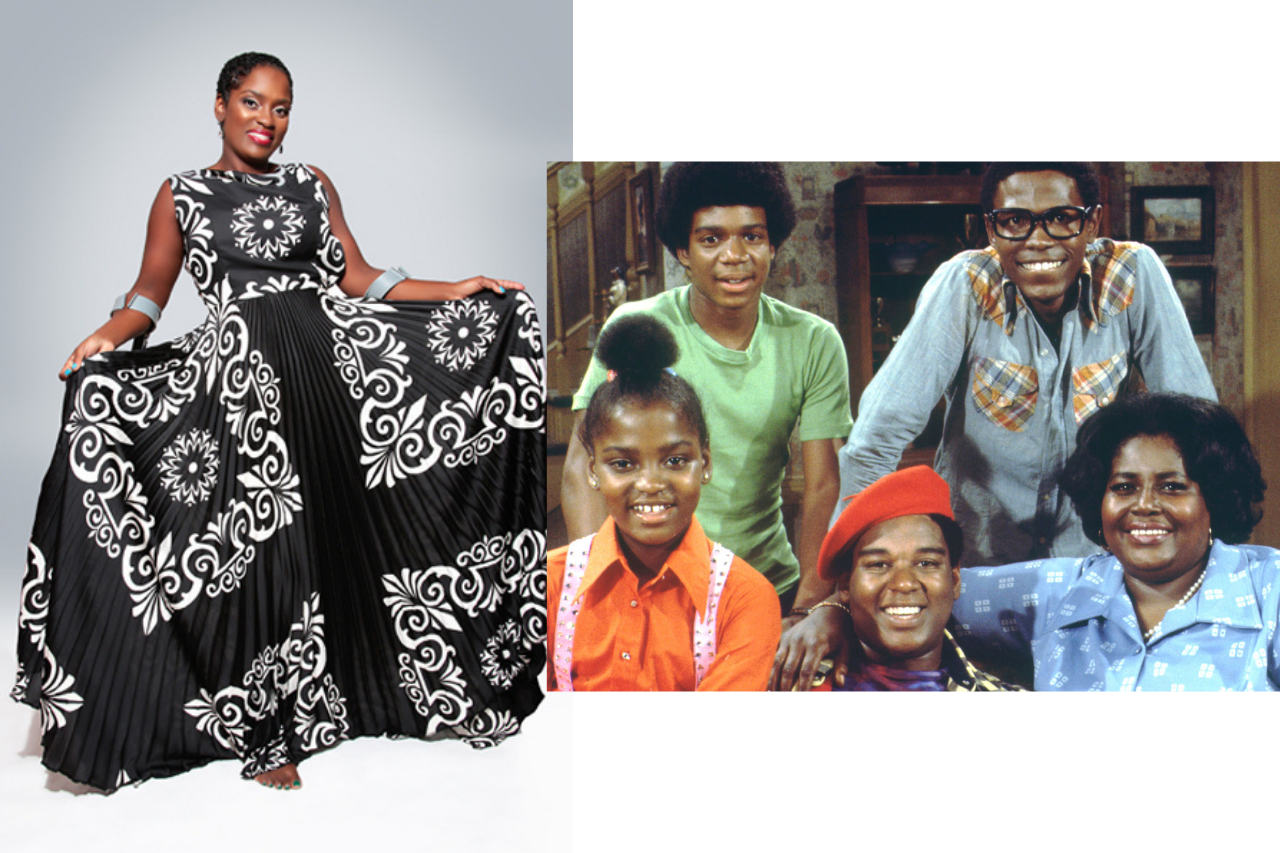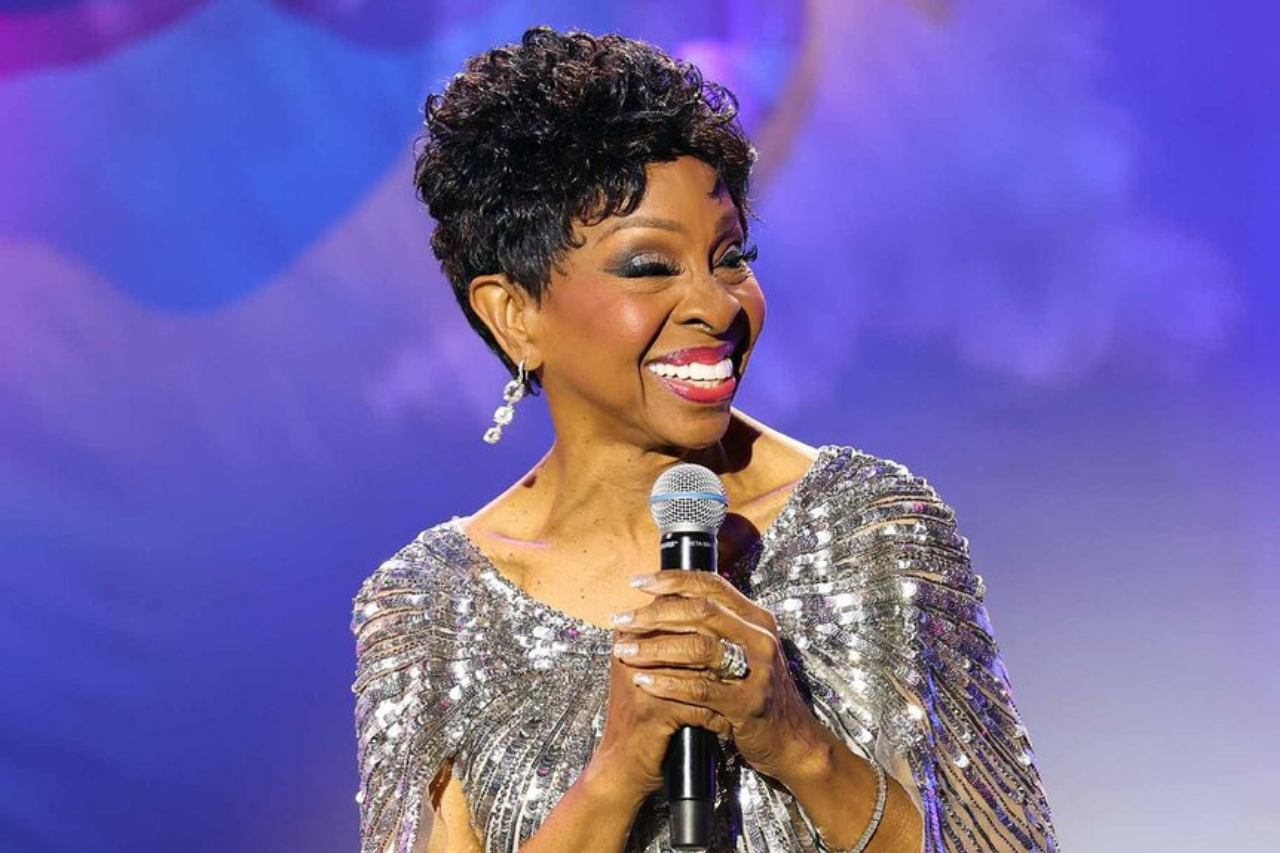In 1999, ESSENCE placed Halle Berry on its September fall fashion cover in a hooded catsuit and shimmering marine-blue eyeshadow. It was a bold, futuristic vision of beauty that symbolized the power of Black women entering the new millennium. At the time, Berry was celebrated as one of Hollywood’s most glamorous leading ladies.
Two decades later, the Halle Berry of 2025 is still glamorous, but her influence reaches far deeper. She is a mother, producer, entrepreneur, and outspoken advocate for women’s health, particularly for midlife women navigating the silence and stigma surrounding menopause. Her journey from cover star to cultural catalyst reveals the many ways Black women are redefining visibility, aging, and power.
Halle Berry’s trajectory shifted dramatically just two years after her September 1999 ESSENCE cover. In 2001, she won the Academy Award for Best Actress for Monster’s Ball, making history as the first Black woman to claim the honor. Her acceptance speech was a watershed moment, honoring pioneers like Dorothy Dandridge and Lena Horne, while expressing hope that the door had finally opened wider for women of color in Hollywood.
That milestone did not erase systemic barriers, but it cemented Berry as a household name and cultural touchstone.
Berry’s versatility allowed her to transition into blockbuster roles. She became known as Storm in the X-Men franchise, one of the most powerful characters in the Marvel universe. She took risks, starring in Catwoman (2004), and later returned to action with a fierce performance in John Wick: Chapter 3 – Parabellum (2019).
Her ability to train, fight, and excel physically well into her fifties positioned her as one of the few women in Hollywood defying the industry’s expectations about age and action.
In 2020, Berry made her directorial debut with Bruised, a mixed martial arts drama in which she also starred. The project was more than a creative leap, it was a statement about women in midlife being fighters, both literally and metaphorically. The film premiered at the Toronto International Film Festival and became one of Netflix’s most-watched debuts.
With Bruised, Berry demonstrated that she was no longer waiting for Hollywood to hand her meaningful roles. She was ready to create them herself.
Halle became a mother in her early forties, welcoming daughter, Nahla, in 2008 and son, Maceo, in 2013. Motherhood transformed her perspective. She often speaks about how raising children shaped her priorities and forced her to renegotiate the demands of fame and family.
For many women, Berry’s motherhood journey resonated as proof that building a family in midlife is not only possible but deeply rewarding. It also made her a more relatable figure. She was no longer only a star on the screen, but a mother balancing joy, responsibility, and public scrutiny.
Halle was diagnosed with Type 1 diabetes in her twenties, and it changed the way she looked at her health. What began as a personal struggle quickly evolved into a lifelong commitment to caring for her body holistically. Over the years, she has opened up about that journey, showing other women that wellness is not about chasing perfection but about building habits that keep you strong and resilient every day.
Her focus on health became even more public when she began speaking candidly about perimenopause and menopause.
“I thought, Oh God, am I starting to have early-onset dementia? Is something happening to my brain? … I felt crazy and alone and afraid. I felt ashamed.”
(Glamour, Women’s Health)
Berry spent nearly a decade suffering through perimenopause without realizing it. She endured memory lapses, headaches, and mood swings, initially misdiagnosed as other conditions. In a striking revelation, she described how even doctors misunderstood her symptoms, which deepened her sense of confusion and isolation. That experience became the seed of her advocacy.
Berry launched Re-Spin, a wellness platform designed to “rebrand menopause.” The platform offers expert advice, community connections, and resources tailored to midlife women. Her goal is to shift the narrative from shame to empowerment, reminding women that this stage of life can be vibrant, creative, and liberating.
Berry’s efforts underscore a critical point: menopause is not a medical failure or an end point, but a natural transition that deserves support and celebration.
In 2024, Berry took her advocacy to Washington. She joined Senators Patty Murray and Lisa Murkowski in introducing the Advancing Menopause Care and Mid-Life Women’s Health Act, a bipartisan bill that would invest $275 million into research, clinical trials, healthcare provider training, and public education.
“I am challenging everything I thought I knew about menopause. Things like: ‘Your life is over.’ ‘You are disposable.’ ‘Society no longer has a place for you.’ ‘You should retire.’ ‘You should pack it up.’”
(Women’s Health)
Standing at the Capitol, Berry declared, “I’m in menopause, OK?” Her blunt honesty cut through decades of silence. She demanded that shame be stripped from the conversation and replaced with research and resources.
Her willingness to tie her celebrity status to a policy fight reflects a seismic shift. She is no longer just a face on a magazine cover but a voice amplifying the needs of millions of women.
In August 2025, Forbes acknowledged Berry’s midlife influence by including her in its 50 Over 50 list—celebrating high-impact women advancing, innovating, and thriving in their 50s and beyond.
Berry responded, “This recognition is not just about me—it is about every woman who’s ever…” though she left the thought unfinished—her inclusion represents the growing cultural shift toward valuing women’s midlife achievements.
This acknowledgment underscores that Berry’s current chapter is not a retirement; it is a reinvention rooted in advocacy and visibility.
This journey was not without its difficulties. Berry has spoken openly about initial career concerns, that publicly discussing menopause might damage her professional image, People.com. But she refuses to let embarrassment or cultural taboos limit her reach.
She frequently stresses that women do not need to feel ashamed, and she urges others to get educated to reclaim control: “Women need more support… we need to be studied” Glamour.
Her high-profile celebrity status, coupled with unwavering honesty, has positioned her as both advocate and ally.
Berry launched Re-Spin, a wellness platform designed to “rebrand menopause.” The platform offers expert advice, community connections, and resources tailored to midlife women. Her goal is to shift the narrative from shame to empowerment, reminding women that this stage of life can be vibrant, creative, and liberating.
Berry’s efforts underscore a critical point: menopause is not a medical failure or an end point, but a natural transition that deserves support and celebration.
“We women have to start demanding more. That’s who I am today: a woman demanding more. I am demanding more because we deserve more.”
(Time)
In 2024, Berry took her advocacy to Washington. She joined Senators Patty Murray and Lisa Murkowski in introducing the Advancing Menopause Care and Mid-Life Women’s Health Act, a bipartisan bill that would invest $275 million into research, clinical trials, healthcare provider training, and public education.
Standing at the Capitol, Berry declared, “I’m in menopause, OK?” Her blunt honesty cut through decades of silence. She demanded that shame be stripped from the conversation and replaced with research and resources.
Her willingness to tie her celebrity status to a policy fight reflects a seismic shift. She is no longer just a face on a magazine cover but a voice amplifying the needs of millions of women.
Berry’s visibility has pushed conversations about menopause into the mainstream. Alongside other advocates and medical leaders, she has made midlife health a national discussion rather than a private struggle.
Her journey demonstrates how midlife can be a stage of reinvention rather than decline. Where her 1999 ESSENCE cover symbolized glamour, her current work symbolizes resilience, community, and leadership.
Berry’s journey mirrors that of many women navigating midlife transitions. The shift from being valued primarily for appearance to being recognized for wisdom, strength, and leadership is one that countless women understand.
For Black women, her advocacy is particularly powerful. Historically, midlife health, especially menopause, has been stigmatized or ignored. By using her platform to demand change, Berry ensures that women who look like her, and women who the healthcare system has overlooked, are finally being seen and heard.
The September 1999 ESSENCE cover with Halle Berry encapsulated an era poised for futurism and glamour. Today’s Halle Berry stands for more than visual symbolism. She has transformed from a fashion icon into a commanding force for midlife wellness, policy reform, and cultural transformation.
Her mission, amplifying the conversation around menopause, securing funding, building community, and modeling midlife reinvention, makes the person in the catsuit more than a cover: she is now a lead advocate, rewriting the narrative for the next generations of women.
Her journey shows that visibility paired with purpose can shift public awareness and generate real change. Halle Berry has transcended the shine to become a catalyst.
Discover more from MidScroll
Subscribe to get the latest posts sent to your email.



